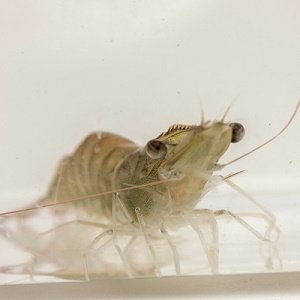
Shrimp farming has become a key player in the global economy and food security, providing a rich source of nutrients for human consumption. However, this industry is not without its challenges.
Disease outbreaks and the diminishing efficacy of conventional disease management approaches, such as the use of antibiotics, threaten the sustainability of shrimp farming. In response to these challenges, the field of epigenetics offers a promising avenue for combating infectious diseases in shrimp aquaculture.
Scientists from Pukyong National University published a scientific review exploring the dynamics of epigenetic modulations in shrimp aquaculture, with a particular emphasis on their pivotal role in disease management.
Understanding Epigenetics
Epigenetics refers to chemical alterations in DNA and proteins that regulate gene expression patterns without modifying the underlying DNA sequence. These alterations are achieved through processes such as DNA methylation, histone modifications, and the action of non-coding RNA molecules.
These epigenetic modifications are not only fascinating but also provide an opportunity to enhance the expression of immune genes and strengthen disease resistance in shrimp, significantly contributing to disease management strategies and optimizing shrimp health and productivity.
In recent years, interest has grown in using “targeted epigenetic modulations” to enhance the biological capabilities of aquatic animals.
The Role of Epigenetics in Disease Management
One of the main challenges in shrimp farming is the outbreak of infectious diseases, which can have devastating effects on shrimp populations.
Traditional disease management methods, such as antibiotics, have limitations and can raise concerns about antibiotic resistance. Epigenetic modifications offer a novel and sustainable approach to enhance the innate immune response of shrimp, making them more resistant to infections.
“It has been shown that shrimp, like other animals, have the potential to potentially modify their epigenetic marks, thus activating immune system-related genes with the potential to increase disease resistance, allowing shrimp to mount effective defenses against pathogens,” the study cites.
Stay Always Informed
Join our communities to instantly receive the most important news, reports, and analysis from the aquaculture industry.
By understanding the epigenetic mechanisms that control the expression of immune genes, researchers can identify potential intervention targets.
For example, they can explore ways to modulate DNA methylation and histone modifications to promote the activation of genes involved in the shrimp’s immune system. This approach has the potential to create shrimp with greater disease resistance, reducing the reliance on antibiotics and minimizing disease-related losses in the industry.
Types of Epigenetic Modifications
The study describes three types of epigenetic modifications: DNA methylation, histone modifications, and non-coding RNA.
DNA Methylation
DNA methylation emerges as the most studied phenomenon due to its ability to serve as a stable and hereditary epigenetic mark that can influence gene expression patterns.
DNA methylation involves the addition of a methyl group to nucleotides within a DNA strand, facilitated by DNA methyltransferase enzymes (DNMT).
Histone Modifications
Histone modifications are fundamental epigenetic mechanisms that intricately regulate gene expression patterns. Histones, crucial protein molecules involved in packaging DNA within chromatin, undergo chemical alterations that dynamically modulate DNA accessibility to regulatory proteins.
Non-Coding RNA
Non-coding RNAs (ncRNAs) have become essential players in the field of epigenetic modifications, encompassing both vertebrates and invertebrates.
Epigenetic Inheritability
One of the most interesting aspects of epigenetics in the context of shrimp farming is the concept of epigenetic inheritability. This means that epigenetic changes acquired during an individual shrimp’s lifetime can be passed on to its offspring.
By selecting and breeding shrimp with desirable epigenetic modifications, it is possible to create generations of disease-resistant shrimp, thus ensuring the long-term viability of the industry.
Challenges and Ethical Considerations
While the potential of epigenetics in shrimp aquaculture is promising, there are challenges and ethical considerations to be addressed.
Researchers must ensure that any epigenetic intervention does not have unintended consequences on the shrimp population or the environment. Furthermore, there may be concerns about the long-term effects of epigenetic modifications on shrimp health and behavior.
Conclusion
The application of epigenetics in shrimp aquaculture presents an exciting and promising trajectory for the industry. By harnessing the power of epigenetic modifications to improve disease resistance and overall shrimp health, we can work towards a more sustainable and environmentally friendly future for shrimp farming.
As we continue to explore the dynamics of epigenetic modulations in shrimp aquaculture, there is hope that this innovative approach will revolutionize disease management strategies and contribute to the long-term viability of the industry. While challenges and ethical considerations remain, the potential benefits of epigenetic applications in shrimp farming cannot be ignored.
This assessment underscores the significance of epigenetics in strengthening sustainability in shrimp aquaculture and highlights the exciting possibilities that lie ahead.
Reference (Open Access)
Wikumpriya, G.C.; Prabhatha, M.W.S.; Lee, J.; Kim, C.-H. Epigenetic Modulations for Prevention of Infectious Diseases in Shrimp Aquaculture. Genes 2023, 14, 1682. https://doi.org/10.3390/genes14091682.
Editor at the digital magazine AquaHoy. He holds a degree in Aquaculture Biology from the National University of Santa (UNS) and a Master’s degree in Science and Innovation Management from the Polytechnic University of Valencia, with postgraduate diplomas in Business Innovation and Innovation Management. He possesses extensive experience in the aquaculture and fisheries sector, having led the Fisheries Innovation Unit of the National Program for Innovation in Fisheries and Aquaculture (PNIPA). He has served as a senior consultant in technology watch, an innovation project formulator and advisor, and a lecturer at UNS. He is a member of the Peruvian College of Biologists and was recognized by the World Aquaculture Society (WAS) in 2016 for his contribution to aquaculture.







